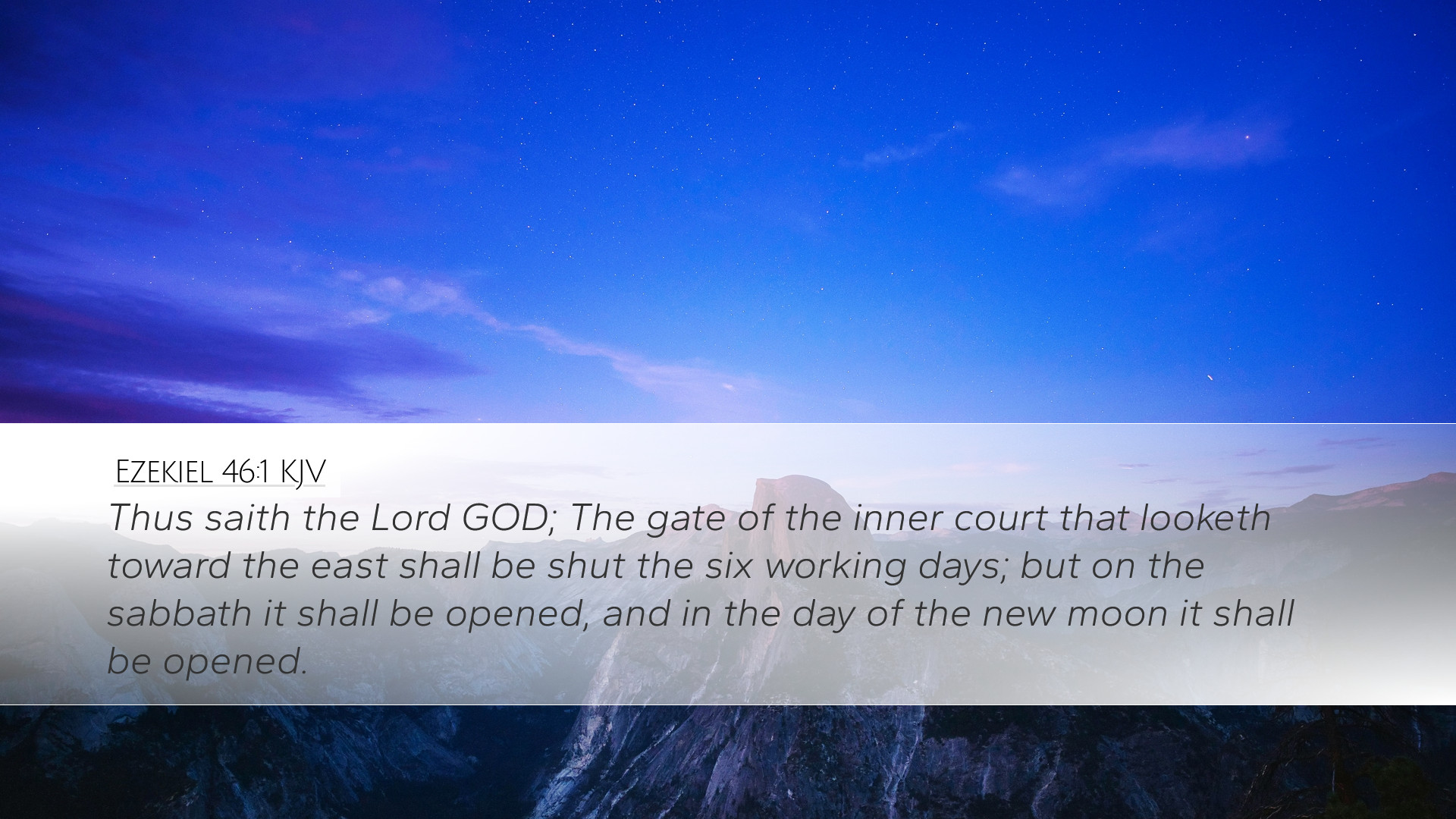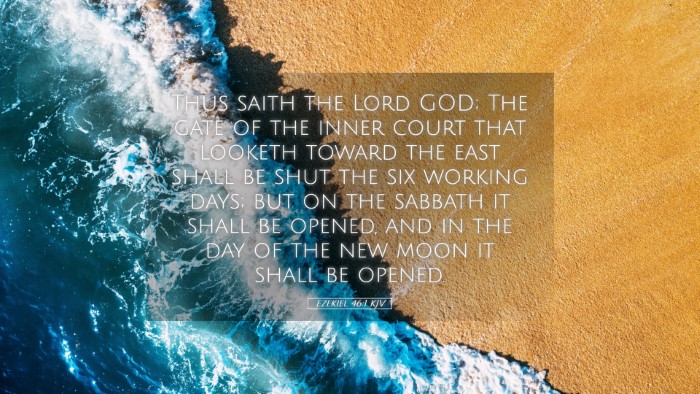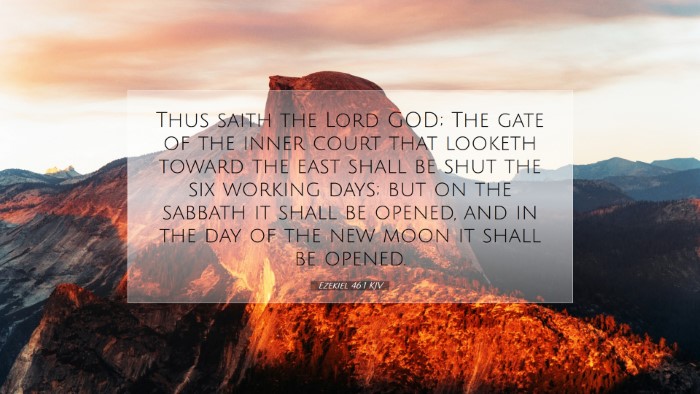Ezekiel 46:1 Commentary
"Thus saith the Lord God; The gate of the inner court that looketh toward the east shall be shut the six working days; but on the sabbath it shall be opened, and in the day of the new moon it shall be opened."
Introduction
Ezekiel 46:1 presents a significant element of the prophetic vision concerning the future temple and its worship rituals. This verse encapsulates both the holiness of the Sabbath and the importance of new moons as times of worship in the ancient Israelite religious calendar.
The Significance of the East Gate
Matthew Henry notes that the east gate of the inner court symbolizes the entry point for God’s presence. In the biblical tradition, east-facing entrances are often associated with divine encounters. This gate being shut during the workweek conveys a sense of sacred separation, emphasizing God's desire for a dedicated time for worship on the Sabbath.
According to Albert Barnes, this closure represents the spiritual principle that God ordained specific times for rest and worship; it forbids the mundane activities of daily life from intruding upon sacred observances. Covering this point, Barnes asserts that it reflects how the people should regard the Sabbath, as a time set apart for reverent worship and rest in God’s presence.
Sabbath Observance
The reference to the Sabbath in Ezekiel 46:1 illustrates the critical nature of this day, as described in the core tenets of Israelite law. Adam Clarke elaborates that the Sabbath was not merely a day off from labor but a profound act of obedience to God’s command. The open gate signifies that the people are to congregate and worship, strengthening their communal and spiritual bonds.
The instruction to open the gate specifically on the Sabbath highlights the importance of this day in Israel’s spiritual identity. The act of opening the gate not only facilitates access to God’s presence but also serves as a reminder of His covenant with Israel. Barnes emphasizes that during the Sabbath, worshipers are to gather to offer sacrifices and partake in fellowship with one another and with God.
New Moon Celebrations
The mention of "the day of the new moon" in connection with the opening of the gate signifies another important observance in the Israelite calendar. According to Matthew Henry, the new moon festivals were occasions of joy and thanksgiving for the agricultural bounty provided by God. This intertwined the themes of creation, divine provision, and communal celebration.
Clarke comments that the new moon marked the beginning of the month in the lunar calendar and held significant ritualistic importance. The opening of the gate on this day allowed for offerings and celebrations, emphasizing God’s ongoing relationship and favor toward His people. These moments were understood not only as timekeeping but also as a formative aspect of Israel’s communal faith.
Theological Implications
Theologically, Ezekiel 46:1 confronts the reader with themes of holiness, separation, and divine covenant. The gate's opening and closing serves as a metaphor for God's accessibility; the six working days symbolize the ordinary rhythm of life which, when untouched by sacred observance, risks pulling individuals away from their relationship with God.
Barnes further elaborates on the importance of separation from secular activities, suggesting that the observance provides a framework for believers to reflect upon their covenant relationship with God, ensuring that worship is integral to their lives. This rhythm of work and worship is crucial for spiritual nourishment.
Practical Applications
For pastors and theologians, the teachings found in Ezekiel 46:1 can be seen as a call to recover and reinforce the importance of the Sabbath and designated times of worship in contemporary faith practices. Matthew Henry urges modern believers to cultivate a mindset that honors divine times set for worship, recognizing the Sabbath as a gift from God meant for restoration and rejuvenation.
Students of the Bible can reflect upon how this passage challenges them to integrate sacred rhythms into their daily lives. As Clarke asserts, the recognition of significant days allows the community to collectively acknowledge God's sovereignty and grace.
Conclusion
Ezekiel 46:1, with its rich layers of meaning surrounding the Sabbath and new moon observances, beckons the faithful to uphold and celebrate these moments of divine encounter. It serves as a reminder of the importance of setting apart time for worship in an age where secular life often overshadows spiritual practice. As such, this verse provides enduring lessons for the church today, culminating in a profound appreciation for times of rest and dedication to the Lord.


